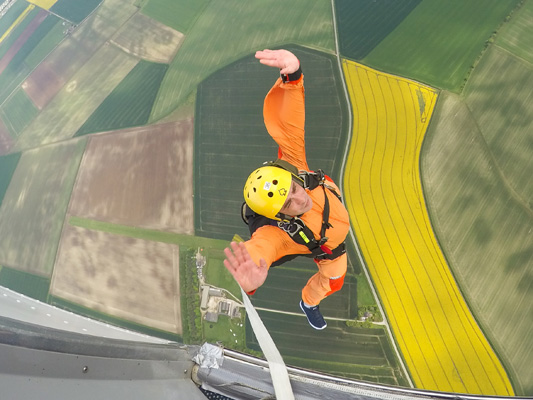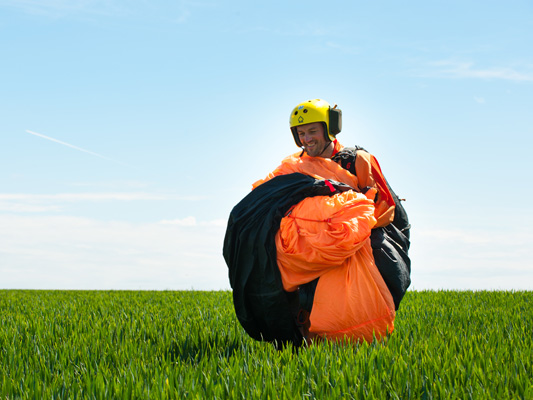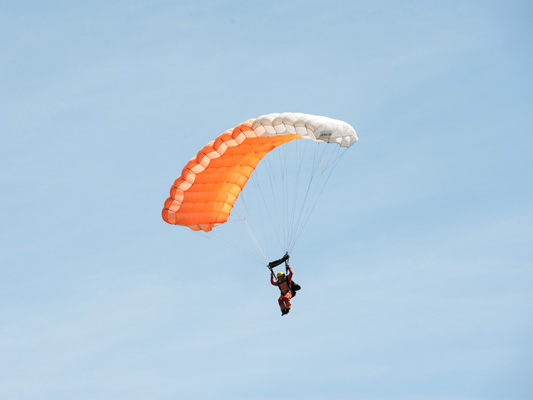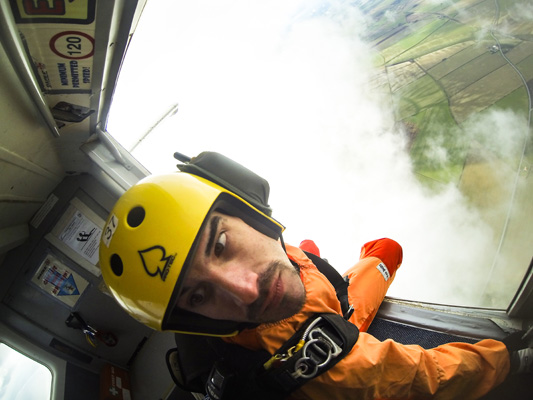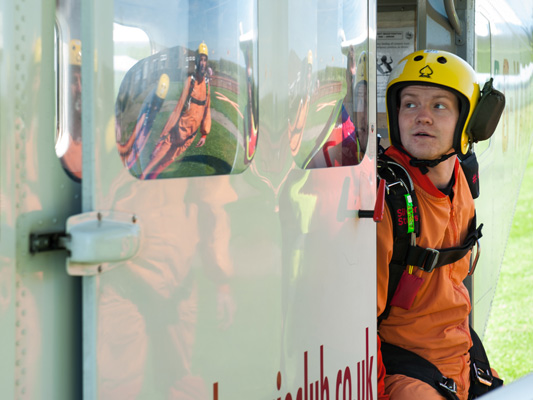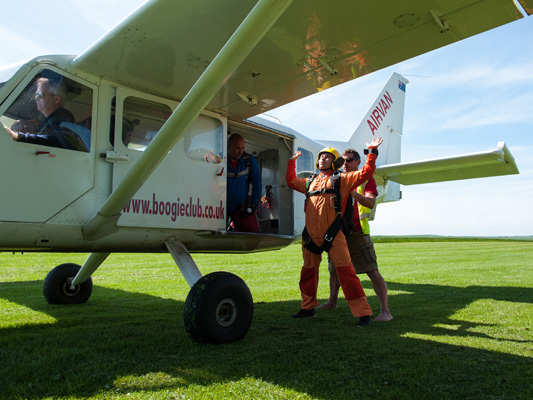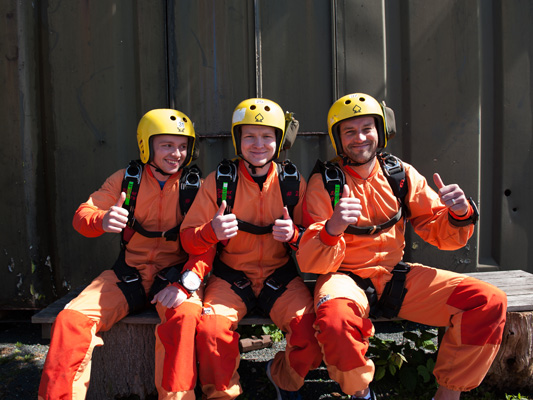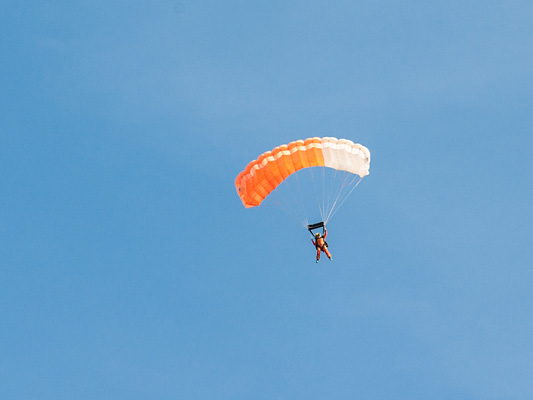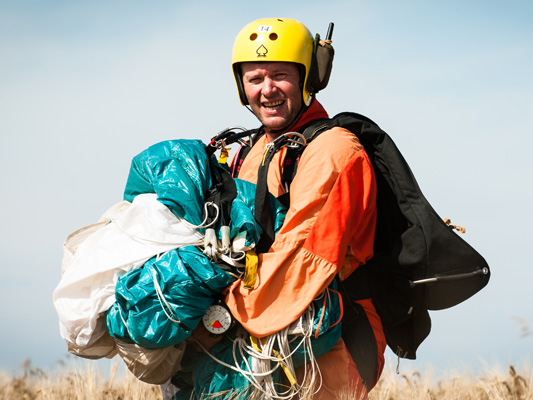
Learn To Solo Skydive
You’re ready to push yourself. We get it, that’s one part of what learning to skydive is all about! But you’re also about to unlock a completely new path in your life. Welcome to the skydive family.
Where better to start that adventure than at Skydive GB Parachute Club, where you’ll learn the foundations of becoming a skydiver with Yorkshire as the backdrop.
With us you’ll learn to skydive with the Static Line system, a British Skydiving approved syllabus for you to get your skydiving ‘A Licence’.
The first step to becoming a skydiver is to book on to a First Jump Course here at the club. If you love your first jump and want to take it further, then you can continue along the progression system and become a qualified skydiver.
Upcoming First Jump Course Dates
THE FIRST JUMP COURSE
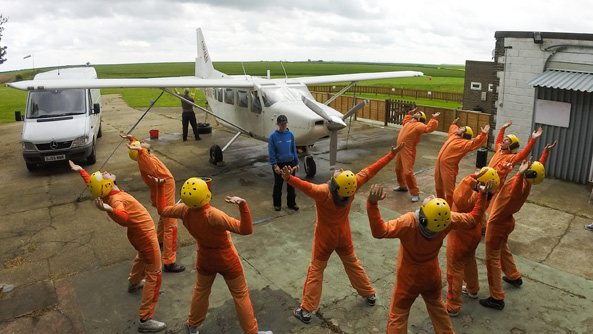
Ground School
6+ Hours of Intensive Training
The very first steps to becoming a skydiver! You’ll learn how to safely exit the aircraft, learn how to fly and land a parachute safely, understand how to handle emergencies and much more. Once you’ve completed the written examination you’ll be all set to make your very first solo parachute jump.
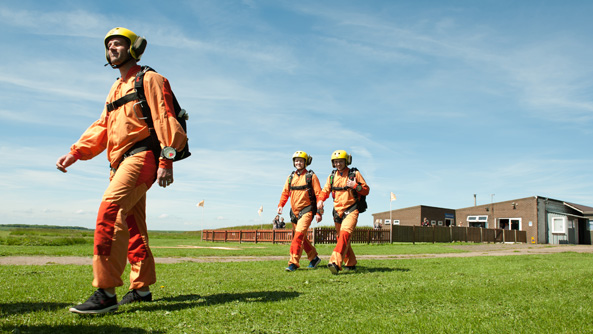
Kit On
it's starting to get real!
When the weather is good, it's time to kit up and get the show on the road! Your instructor will assist you into the gear and get you set to make the jump. This will probably be the moment it suddenly becomes very real, but don't worry - we have all been there!
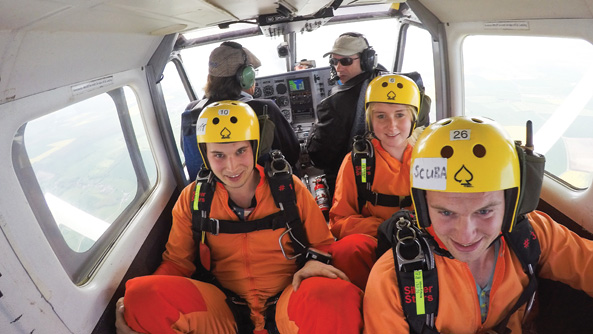
The Flight
You're almost there
Once boarded with your instructor, it's time to take off and climb up to your jump altitude of 3,500 feet. Make sure to take in some of that Yorkshire countryside, before you jump towards it!
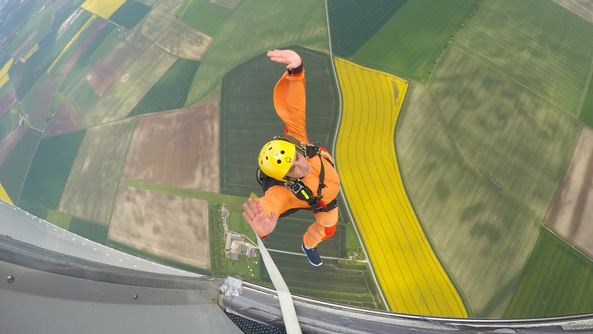
The Jump
What goes up, must come down
This is it, a few deep breaths and when instructed you’ll exit the aircraft. Thanks to the Static Line, your parachute will automatically deploy.
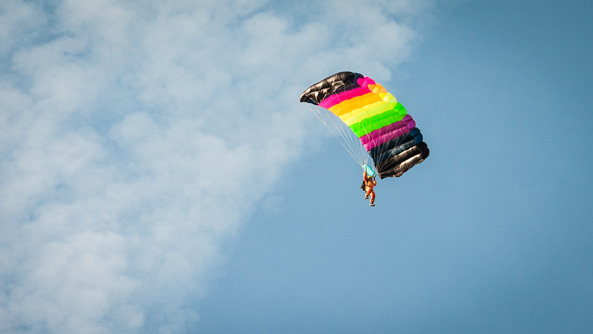
The Parachute Flight
Fly like a bird
By now you should have a nice big parachute above your head. With radio contact, you’ll descend to the Parachute Landing Area and make those steps back to terra firma.
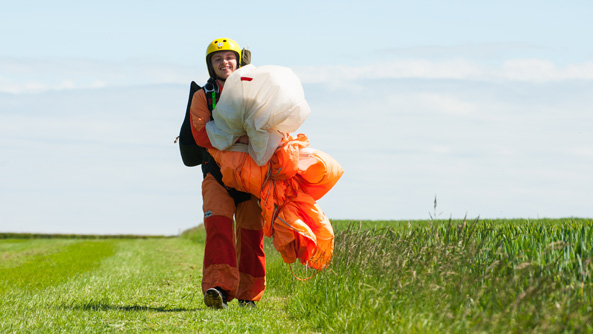
The Debrief
Welcome to skydiving!
After a short walk back to the club house it's time to high five your mates and discuss how incredible it was. You'll be debriefed by your instructor and finally awarded your certificate.
TOTAL PRICE FOR YOUR FIRST JUMP COURSE
1-4 People
- £229/pp
-
Reserve for £60 pp
Total balance of £169 pp payable on arrival
5+ People
- £POApp
-
Reserve for £60 pp
Total balance payable on arrival
Take a look here for a price breakdown of this experience.
FURTHER PROGRESSION & BECOMING QUALIFIED
Once you’ve completed your first solo static-line jump, you’re ready to progress on the Category System. Each progression jump will now cost £45, providing you stay ‘current’ and don’t let too much time pass between jumps.
Because you are building on what you have already learnt in the initial ground school, the training for each of the new jumps takes less than an hour and so you can now make several jumps per day, weather permitting.
Categories 1 to 2:
The training day prepares you for the first jump. A Static-Line is used on exit to deploy the main parachute automatically, but allows you to demonstrate a good exit, body position and safety count as you leave the aircraft.
Category 3:
The parachute is still deployed by a static line but now ‘dummy ripcord pulls’ are used to simulate a freefall exit and canopy deployment by practicing opening your parachute with a ‘pretend’ ripcord. Once these simulations have been demonstrated successfully and consistently, then your instructor will approve your first freefall skydive.
Categories 4 to 6:
These skydives involve freefalling and opening the main parachute at a predetermined time after leaving the aircraft (known as a delay). The first freefall delay is three seconds, after which both in time and exit altitude increase with each successful performance until a 15 second delay is reached. Once you reach these longer delays you will be experiencing terminal velocity and freefalling at 120mph towards the earth.
Category 7:
Starting with controlled 360 turns, manoeuvres in freefall are now introduced. Around this point, you’ll receive further canopy control training helping you achieve your Canopy Handling (CH1) certificate.
Category 8:
Once you can maintain and change your direction in freefall you can start having some real fun in the sky jumping from full altitude. You will learn new skills including how to exit the aircraft in an unstable position and recover, dive exits, tracking (moving forwards) and track turns.
Qualification jump:
In order to be awarded an A-Licence as a British Skydiving qualified skydiver (formally the British Parachute Association), you will need to complete the final stage qualification jump. You must perform every manoeuvre on a single skydive from full altitude showing control, precision and awareness throughout.
SOLO SKYDIVING ISN’T FOR EVERYONE
Sadly, we can’t share the love of skydiving with everyone. Due to the nature of the sport there are some age, weight and health restrictions.
Age
The minimum age for solo skydiving is 16. Under 18’s require parent/guardian permission in the form of signing the British Skydiving membership agreement and appropriate medical declaration below.
Notice for participants under the age of 18: As there is additional paperwork for under 18’s that must be completed by a parent/guardian, then we suggest one is present on the day of the jump. Photo ID for proof of age will also be required.
We are unable to provide solo training for anyone aged 55 or over due to nationwide restrictions from our governing body.
Weight and height limits
The maximum weight for the Static Line Course at Skydive GB Parachute Club is 14 stone and your weight must be in proportion to your height. There is no height limit.
Medical Requirements
There are a few medical conditions which can cause issues when skydiving – these can all be found on the Solo Student Declaration of Fitness (Form 115C).
It’s important that you read and understand the Solo Student Declaration of Fitness (Form 115C). If you have a medical condition listed, it doesn’t mean you can’t jump – you will just need your doctor to sign the Request for Medical Advice (Form 115D). Remember – we are unable to provide solo training for anyone aged 55 or over.
If you’re still unsure, take a look at our blog post on ‘Which Medical Form For Skydiving’.



